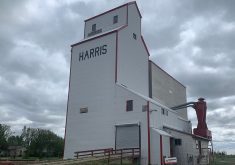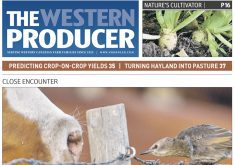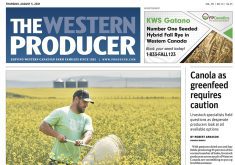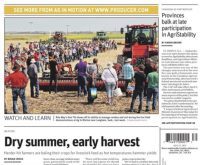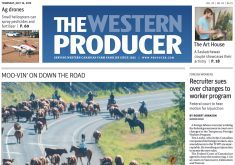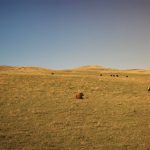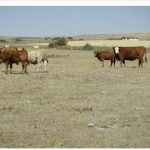For the next year, this column will mark The Western Producer’s 100th anniversary by taking a deep dive every week into a past issue of the paper.
One thing I’ve noticed while reading through old copies of The Western Producer is that the paper didn’t do a lot of practical, production-oriented on-farm stories back in the day.
That’s why my interest was piqued when I stumbled across a story on page 12 of the Feb. 6, 1969, issue about a farmer who had used green oats to provide a form of roughage for his cattle.
Read Also

Agriculture needs to prepare for government spending cuts
As government makes necessary cuts to spending, what can be reduced or restructured in the budgets for agriculture?
J.J. Palmer, a Hereford breeder near Marsden, Sask., planted late oats in July on 150 acres because drought in the early part of the summer had depleted pastures.
Soon after the crop was seeded, 13 inches of rain fell in the next three and a half months, and because most of the farm’s storage space was filled from the 1967-68 crop, Palmer decided to swath the late oats and leave them in the field for his cattle. This eliminated twine baling and hauling costs.
Exceptionally heavy snow that winter meant he had to plow the field to expose the swaths, which he said was easier than it used to be with the advent of heated tractor storage and heated cabs.
The story was accompanied by a photo of Palmer’s cattle “munching on green oats left in swath for winter feeding” while a tractor bulldozed snow in the background.
This was a precursor of the kind of coverage that the Producer would become known for in later years.
Of course, there was also plenty of farm-government friction to cover.
In just one example from this issue, federal agriculture minister H.A. (Bud) Olson, while appearing at the Canadian Federation of Agriculture’s annual meeting, threw cold water on calls for a two-price system for wheat.
He said such a system would mean “some of our competitors could make a pretty good case for dumping claims.”
Saskatchewan Wheat Pool president Charles Gibbings countered by saying the United States was already guilty of that kind of action.
And so it went.





